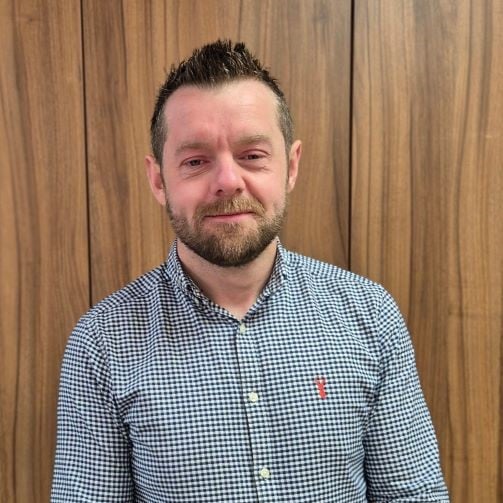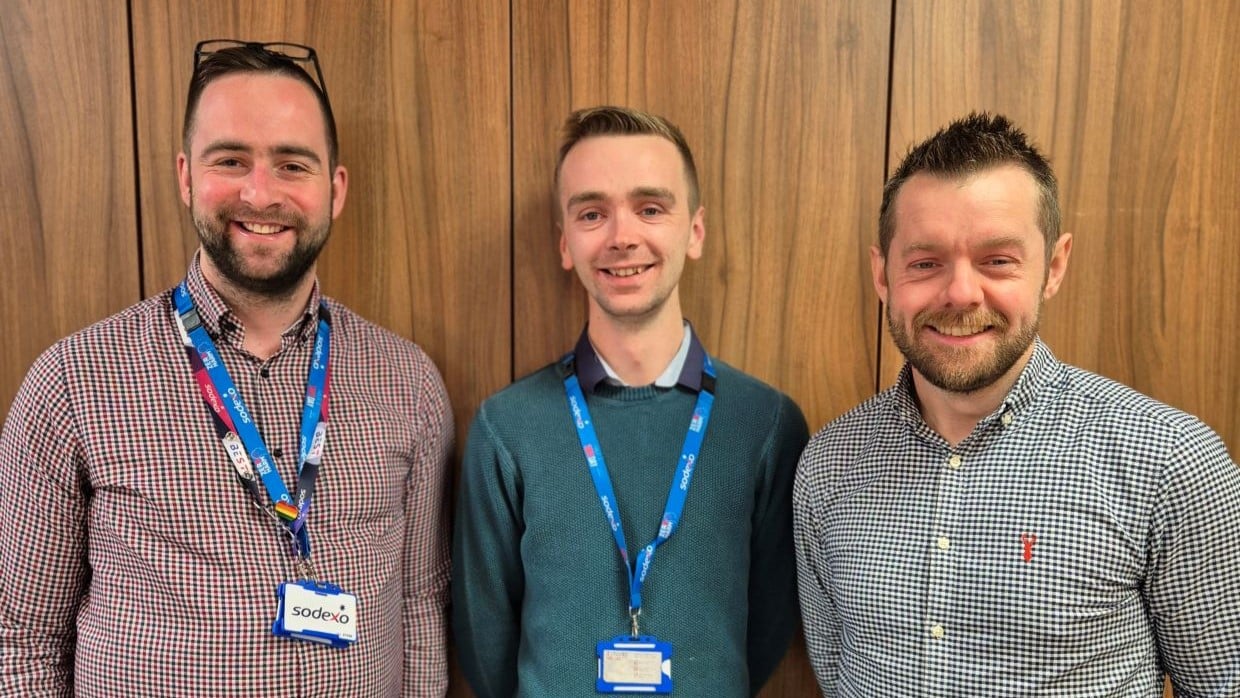How Paul Price is taking WasteWatch to the next level

Food waste is one of the greatest contributors to climate change and biggest scandals of our time. As a vital lever of our net zero 2040 journey, Sodexo has pledged to halve food waste by 2025 – with so many of our clients, partners and colleagues playing an active role. In this series, we introduce you to some of the people across our business who have an Appetite for Action on fighting food waste.
Paul Price is Sodexo’s Deputy Contract Manager at 350-bed North Devon Hospital. He spent his early career running pubs and only discovered the connection between food waste and climate change when he joined Sodexo in 2015. Now, he’s helping to pioneer the use of WasteWatch across all aspects of hospital dining. Paul talks about the challenges of hospital food service, progress to date, and how the support of his client has made all the difference.

Focusing on food waste
Helping to keep a hospital running smoothly takes a big team. We have 330 people on site, including porters, cleaners, chefs, retail staff and 50 patient service assistants who take people’s orders and serve their food.
Everyone here is 100% focused on patient care, and food is a big part of that picture. That means food waste is too, because less waste means a better match between what patients want and what we provide. We’ve been working to cut food waste for some time, in partnership with the hospital’s own management team, and WasteWatch has been a game-changer.
Starting our WasteWatch journey
WasteWatch makes it easy to weigh and categorise your food waste so that you can see why it’s occurring and work to reduce it. We first introduced it in May 2021 on the retail side, which covers staff and visitor dining. We started out with three weeks of continuous weighing and logging to set our baseline and give us the data we needed to take action.
When we sat down as a team, we could spot the quick wins straight away. Less fish pie, for example. It’s a popular dish, but we’d been producing far more of it than we needed, so we reduced the volume and reduced our waste. Today, that’s a continuous process. If we see waste ticking up, we remove that dish and replace it with something seasonal. In just over two years, we’ve been able to reduce our food waste on the retail side by 50%.
Extending the programme to patient dining
Patient dining is different. There’s multiple wards, different needs and unpredictable volumes, all of which make it hard to serve every patient without generating high volumes of food waste. In 2020, we started logging patients’ orders on a tablet much closer to service time. It led to a big reduction in production waste because it gave us a clearer picture on numbers and preferences.
Then in 2022 we trialled logging plate waste after every patient service manually, using approximate portion weights to set a baseline. But the data we ended up with was no comparison to what we were getting in retail, so we worked closely with the hospital’s facilities team to roll out WasteWatch on the patient side too.
Using accurate data to improve the patient experience
We’ve been using WasteWatch in patient dining since June 2023. In all but one of the wards, we log the food left on trolleys and the food left on patients’ plates. Only the Medical Assessment Unit, which acts as a triage centre, is excluded, although tablet ordering is still in place.
After just four months, we can see how food waste differs between the wards, enabling us to adapt our service to match. The surgical ward, for example, could benefit from lighter meals. It’s data that we’ll use continually to reduce our food waste and improve the patient experience at the same time.
Enjoying the hospital’s full support
The success of our WasteWatch journey so far is down to the genuine commitment shown by our staff and the hospital’s own facilities team. Lisa Wright, who acts as deputy head of facilities for North Devon and a number of other hospitals, has championed this project from the start. Any change to patient-facing services has to be done carefully, and having a client who’s willing to work through those challenges together makes such a difference.
Before joining Sodexo, I hadn’t made the link between food waste and climate change. But now I do, it makes my work all the more rewarding. I know that any progress we make, however small, will add up to a big benefit for patients and the planet.
